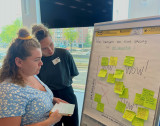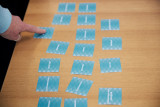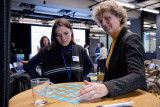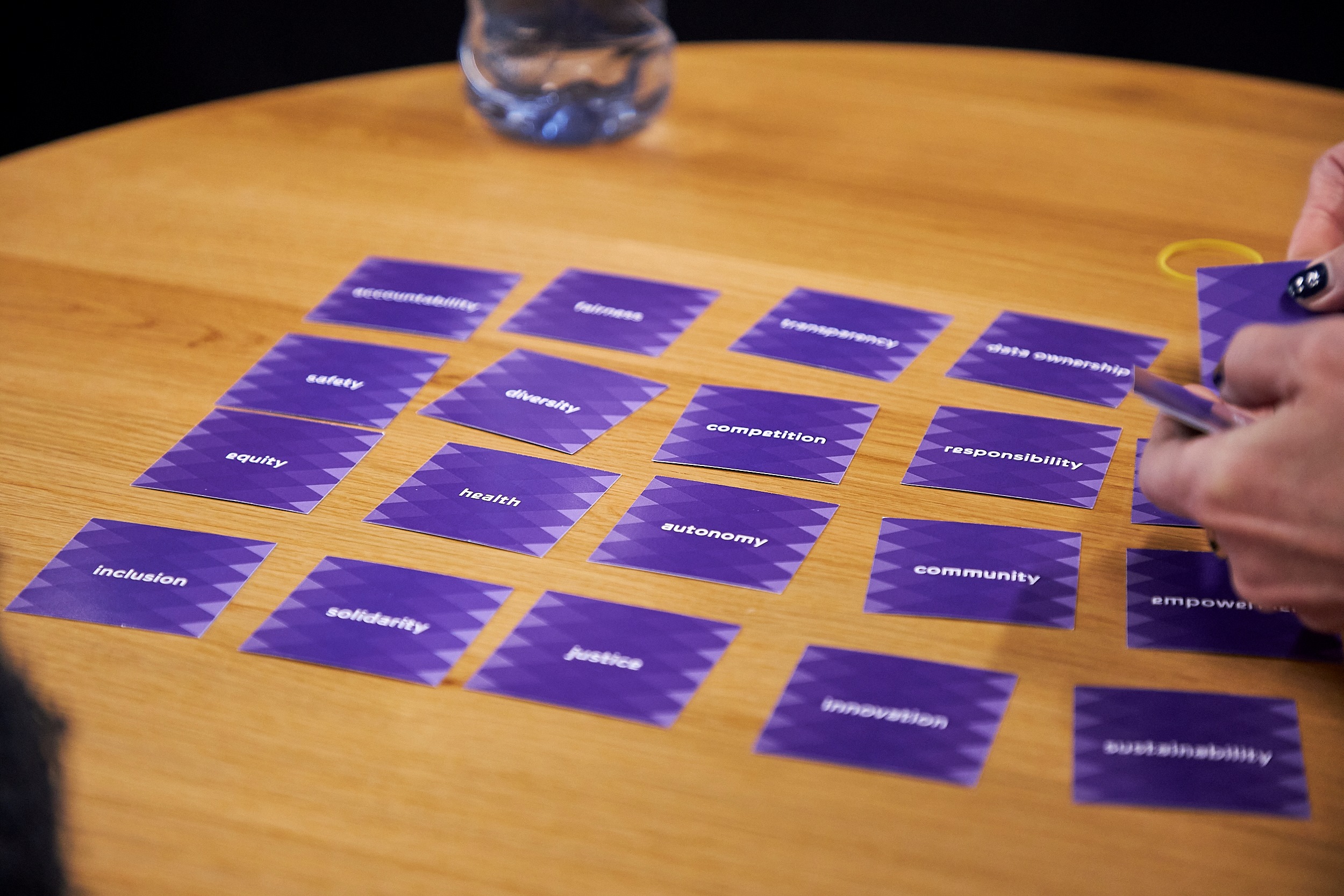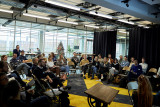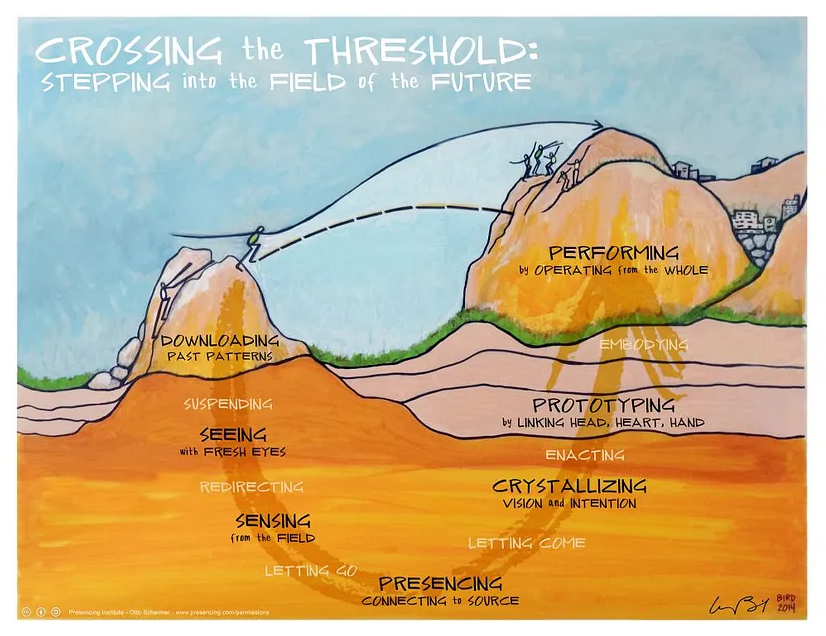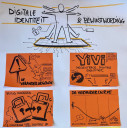Demoday #25: Safety in the Energy Transition
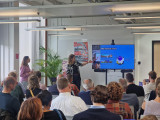
The energy transition is well underway, integrating electric vehicles, solar panels, battery storage, and other innovations into our daily lives. However, this shift also introduces new and unfamiliar safety challenges. For example, electric vehicle fires require specialized extinguishing methods. Unfortunately, these safety risks are often overlooked within energy transition projects or addressed only in hindsight. To address this issue, Johan de Vries (Safety Region Amsterdam-Amstelland) and Tommy Borger (Municipality of Amsterdam) introduced the participants to the topic of safety in the energy transition during this work session on Demoday #25. Together, we explored how to effectively integrate safety measures into energy transition projects, without slowing down critical progress.
Introduction to safety in the energy transition
Johan opened the session by explaining why the fire department and safety region are directly involved in the energy transition. “When things go wrong, the fire department is called in,” he explained. Even with their preparedness for emerging dangers, the fire department faces growing challenges with electrification and batteries. For example, as the number of emission-free vehicles increases, so does the risk posed by (older) batteries, which can lead to fires in electric cars. Sustainable innovations, he emphasized, are not inherently safe innovations. Johan mentioned the Johan Cruijff ArenA as an example, home to Europe’s largest energy storage system using second-life electric vehicle batteries. While it is a sustainable solution, questions about its safety remain.
Collaboration and awareness is key!
The participants then engaged in discussions centered around two questions:
- Can safety go hand in hand with speed in the energy transition?
- Is collaboration in the energy transition a threat or an opportunity?
The group agreed that while speed is important when it comes to the energy transition, sometimes slowing down is necessary to avoid risks. Although not all dangers can be prevented, progress can be made by learning from experiences along the way. Although collaboration sometimes slows things down, it was seen as an important aspect when it comes to safety in the energy transition. Participants suggested that the fire department could work more closely with manufacturers, such as those producing electric vehicles, to make safety a shared responsibility. Additionally, the safety region could become a partner in regional innovation projects, such as ATELIER, to ensure safety is integrated from the start.
The session concluded with consensus on one pressing issue: there is a significant lack of awareness about safety in the energy transition. This blind spot often results in insufficient attention to safety risks in energy transition projects. One suggestion was to publish an article in a national newspaper to raise public awareness of these challenges. Through this session, we addressed the issue of safety in the energy transition in the Amsterdam InChange network. Johan gained valuable insights on collaborating with other parties in the Amsterdam Region and is looking into how the safety region can build on this session’s outcomes and give it a meaningful follow-up.
Would you like to learn more, or do you have any input for Johan? Leave a comment and I’ll connect you with Johan!
